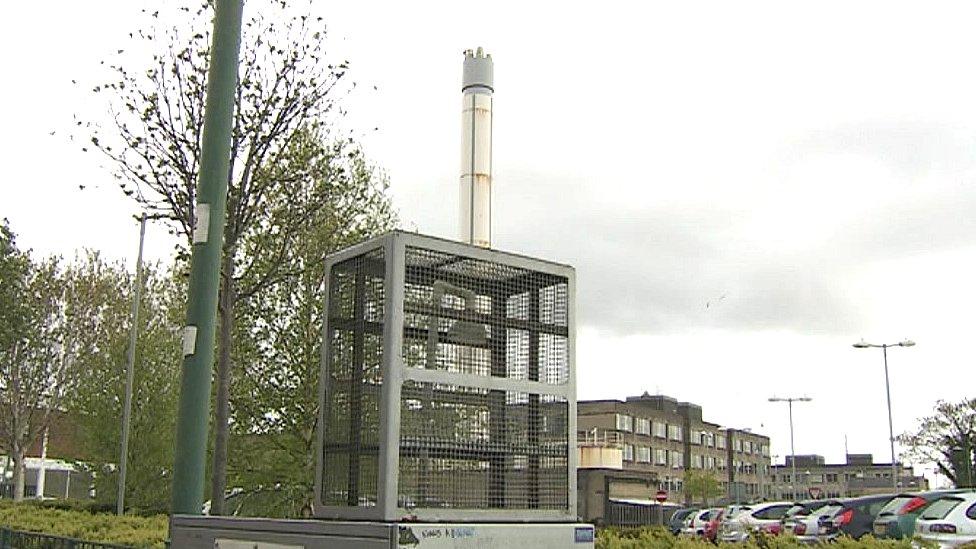Are new Clean Air Zones voluntary?
- Published
- comments
Plans to tax diesel lorries for entering city centres have been thrown into confusion after one of the cities ordered to bring in the charge have insisted it should be "voluntary".
Last year the government ordered a clean air zone be imposed by five cities in the UK where pollution was highest.
In Birmingham, Leeds, Derby, Nottingham and Southampton the most polluting vehicles, like old buses, taxis, coaches and lorries, will be discouraged from entering the zone through charges. DEFRA says it has ordered the scheme, external to be introduced by 2020.
But Southampton City Council claim it is making its own voluntary plans.
In a statement, the local authority said: "There is not a statutory requirement at the moment. Southampton City Council have persuaded DEFRA to allow us to put in place a voluntary scheme. We will be working with DEFRA to review and monitor the scheme throughout its implementation."

An air monitoring station in Southampton
Why might Southampton want its own scheme rather than one designed in London? Perhaps it is because it is the only coastal city on the list.
When California introduced clean air legislation it found ships' engines burning heavy oil contributed a large amount of the nitrogen oxide in the air.
When it ordered ships to use marine distillates within a 24-mile zone from the coast, many ships took alternative routes to avoid the charge, actually increasing the amount of pollution caused.
Green MEP for South-East England Keith Taylor says the British government has only ordered action after breaching European standards.
"They are cocking a snook at the European legal system. It's arrogant and it's totally inadequate," he added.
The scandal around German car manufacturers Volkswagen fitting software to cheat emission tests has also hardened attitudes. Liberal Democrat Catherine Bearder MEP is a lead negotiator on new air pollution law and called the British action "too little, too late".
"Not only is the government exempting highly-polluting cars, it is trying to actively weaken measures that would bring emissions from these cars down."
The government insists that between 2005 and 2013 emissions of nitrogen oxides have fallen by 38% and particulate matter has reduced by more than 16%.